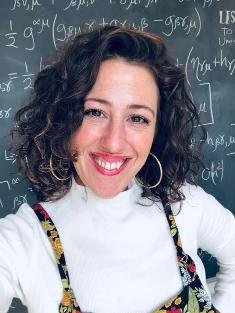Dr Emma Osborne

Associate Lecturer in Theoretical Astrophysics
Email: emma.osborne@york.ac.uk
Research Expertise:
Gravitational wave astronomy
Neutron stars
Theoretical astrophysics
Communicating physics to non-specialists
Biography
Biography
I am an Associate Lecturer in the School of Physics, Engineering and Technology, specialising in theoretical astrophysics. My research focuses on neutron stars as sources of gravitational waves.
Publications
Publications
Gravitational waves from magnetically-induced thermal neutron star mountains
E.L.Osborne, & D.I. Jones, 2020, Monthly Notices of the Royal Astronomical Society, 494 (2), 2839-2850
Type: Article
Research
Research Interests
My research interests are in the field of gravitational wave astronomy. I am particularly interested in how neutron stars make gravitational waves by growing mountains. These systems could produce continuous gravitational wave signals that are potentially detectable on earth. The first gravitational wave signal was detected in 2015, there have been numerous more detections, although to date a continuous gravitational wave signal from a neutron star is yet to be observed. My work is theoretical and can help guide efforts of detecting continuous gravitational wave signals from neutron stars.
The combination of neutron star theory with experimental detection, will enable physicists to gain a deeper insight into the physical processes that take place inside a neutron star. This is important as the high density environment of a neutron star puts matter under extreme conditions that cannot be replicated on earth. This property makes neutron stars excellent laboratories for studying fundamental physics, particularly in the fields of nuclear and condensed matter physics to general relativity.
I am also very active in communicating physics to non-specialists using innovative techniques and methods. I can often be found talking about all things physics on social media, Mainstream media as well as performing on stage at science and music festivals.
